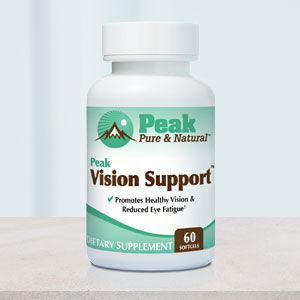Get Easy Health Digest™ in your inbox and don’t miss a thing when you subscribe today. Plus, get the free bonus report, Mother Nature’s Tips, Tricks and Remedies for Cholesterol, Blood Pressure & Blood Sugar as my way of saying welcome to the community!
Two ways antioxidants help reduce brain injury from stroke

A stroke is a scary thing…
The blood is cut off to an area of your brain and the cells in that area die. And because of the unique nature of a stroke and the physical and chemical changes it causes, the damage can continue — killing more brain cells even days after.
The larger the area of damage, the worse issues you’ll experience. Large strokes can cause speech problems, paralysis or even death while small strokes may just result in weakness in an arm or a leg.
The only sure way to avoid all of these things is to never have a stroke. A few important stroke prevention tips recommended by Harvard Medical School include:
- Maintaining healthy blood pressure and blood sugar
- Losing any extra weight
- Exercising more
- Limiting alcohol
- Quitting smoking
- Treating any problems with atrial fibrillation (irregular heartbeats)
But unfortunately, estimates are that approximately 600,000 Americans will experience their first stroke this year. That means someone you know, maybe even some of us reading this right now, could be in that number.
But there’s still something you can do that could both increase your odds for less brain damage and help your recovery if it happens…
The brain-protecting triple power of antioxidants
Ground-breaking research was carried out by a team of scientists from the University of South Florida College of Medicine, James A. Haley Veterans’ Hospital and the National Institute on Drug Abuse, that looked into the effects of antioxidants on stroke.
Previous research had already proven that diets enriched with blueberries, spinach or spirulina reversed normal age-related declines in memory and learning in old rats. So, they decided to test the antioxidant powerhouses against the damage caused by a stroke.
The researchers studied four groups of rats that were fed either one of the three antioxidant compounds or a placebo. After four weeks strokes were induced in the rats.
They found that:
- The size of the stroke in the rats fed blueberry or spinach supplements was half that seen in the brains of untreated rats.
- Rats fed spirulina-enriched diets had stroke lesions 75 percent smaller than their untreated counterparts.
- Rats pretreated with the blueberry, spinach or spirulina diets all showed greater increases in post-stroke movement than the control group.
“I was amazed at the extent of neuroprotection these antioxidant-rich diets provided,” said Dr. Paula Bickford, a researcher at the USF Center for Aging and Brain Repair and James A. Haley Veterans’ Hospital. “The size of the stroke was 50 to 75 percent less in rats treated with diets supplemented with blueberries, spinach or spirulina before the stroke.”
How do antioxidants help the brain
According to the researchers, the blueberry, spinach and spirulina helped to reduce the size of the stroke. How? They offered major protection…
The antioxidant and anti-inflammatory substances in the fruits and vegetables appeared to reduce the nerve cell injury and cell death triggered by a stroke.
First, according to scientists, the antioxidants may counteract the burst of free radicals involved in the cascade of brain cell death triggered by a stroke. Secondly, they also are anti-inflammatory, which may help inflammation-induced injury following a stroke.
“The clinical implication is that increasing fruit and vegetable consumption may make a difference in the severity of a stroke,” Dr. Bickford said. “It could be a readily available, inexpensive and relatively safe way to benefit stroke patients.”
So, if a stroke is a concern for you, like it is with my family health history, increasing your daily dose of antioxidants like blueberries, spinach and spirulina would make a lot of sense. In my book, the best “medicine” is preventative — and if it’s food, that’s even better.
Editor’s note: Have you heard of EDTA chelation therapy? It was developed originally to remove lead and other contaminants, including heavy metals, from the body. Its uses now run the gamut from varicose veins to circulation. Click here to discover Chelation: Natural Miracle for Protecting Your Heart and Enhancing Your Health!
Sources:
- Overview of Stroke — Neurology
- 7 things you can do to prevent a stroke — Harvard Health
- Antioxidant-rich Diets Reduce Brain Damage From Stroke In Rats — University of South Florida Health Sciences Center
- The role of free radicals in disease — Australian and New Zealand Journal of Ophthalmology
- Antioxidants — Mayo Clinic













